Split Winter Tourism: The Daltonist Presents Chef Takeovers, Live Music, Art Exhibits
November 10, 2021 - Is Split winter tourism that hard to achieve? Croatia's second-largest city and the star of summer loses its buzz as soon as the seasons change. But it doesn't have to be that way. Our new TCN series looks at the Split businesses working hard in winter to give locals, and visitors, the environment they deserve. First up, meet The Daltonist.
I'll never forget being congratulated after making it through my first Split winter as if I was nuts to attempt such a feat.
"How did you survive?"
"How could you enjoy it after living in California and London?"
"Isn't winter in Split too boring for you?"
But the reality of my first winter in Split is wildly different. It's the reason I decided to stay in Croatia at all. Sure, it pales in comparison to the bustling summer months, but thanks to its mild climate and sunshine, I'm still wearing sunglasses here year-round. And if you can get through that one bad month of brutal bura, I promise the weather will reward you the rest of the year.
Split winters, however, are not nearly used to their full potential. Instead, they are reserved for the locals to hibernate after a busy summer, with 50% of restaurants, bars, and businesses saying goodnight after a season well done. The once-lively old town becomes a ghost town, with the few flickering lights of restaurants and cafes reminding us they're still there should we wish to visit them. And those same businesses endeavor year after year, hopeful that this offseason will be the one to bring life back to Split. TCN is shining the spotlight on them in our latest series.
First up, we meet owner Luke Stewart and marketing & brand director Flor Vignaroli of The Daltonist, a craft cocktail bar and gastropub around the corner from Pazar and just outside the palace walls.
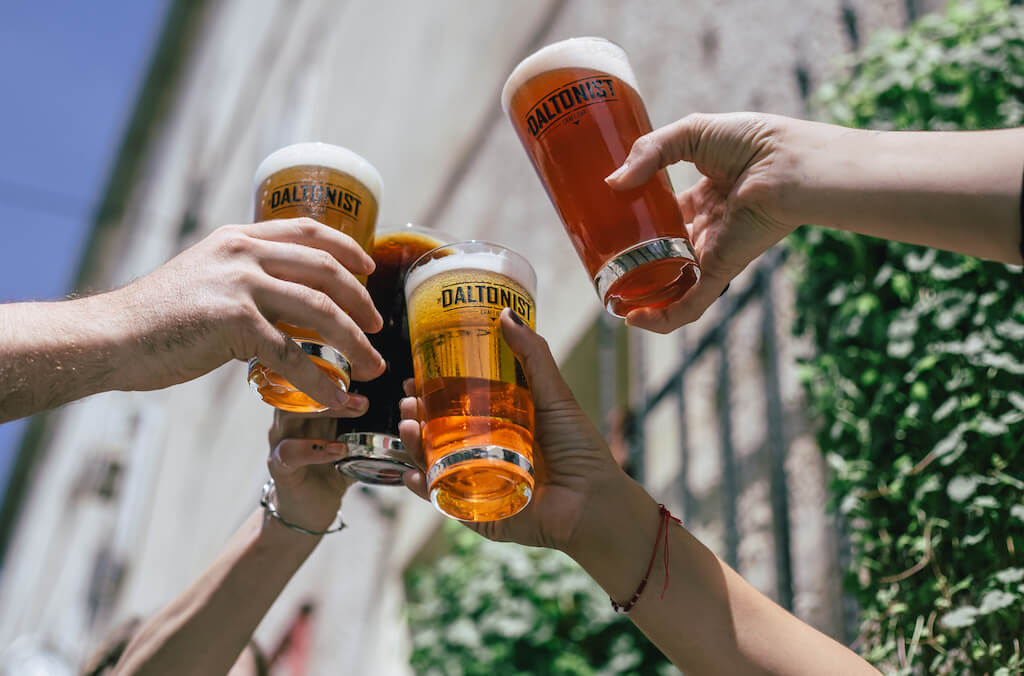
Croatia and Split had successful year-round tourism in the 1980s until the outbreak of the Homeland War, but now the Dalmatian coast sleeps through the winter. Why do you think that is?
Luke Stewart: I think a lot of it is cultural. I think now, compared to the 80s, there is much harder work in the summer. The summers are crazy and tiring. So you combine this culture of people not wanting to work so much with people having to work twice as hard in the summer, and I get it. Dalmatians love the sun. When the weather isn't good, it sucks the life out of all Dalmatian people, and I think that is also a big part.
There is also no awareness. No one is doing anything to bring people. Just like Paul (Bradbury) said, if there are no flights, how will people come?
If flights were not the problem, does Split have a winter tourism offer, and if yes, what is it?
Luke Stewart: It's kind of like the chicken and the egg. If people were coming, people would do something, and at the same, if people were doing something, they would be more likely to come. Zagreb Advent started for locals, and it was very much a local event. Based on that example, you have to do something for people to start coming. But how do you do it?
Locals don't go out as much or spend as much money. So if you are trying to provide an offer that international people will come for, that needs to work locally in the beginning. If locals don't want it, it's a catch 22.
Being from Leeds, do you think tourists from the UK would visit Split in the winter?
Luke Stewart: I think they could, but right now? No way. It is very much seen as a summer place because it is exactly that. If you google Croatia, you see beaches, beach clubs, the sun, boats, and the like. So why would people want to come here in the winter? Prague and Brussels are places people want to go to in the winter because they are cozy and festive. Zagreb did a great job at that, too. But the coast? No way.
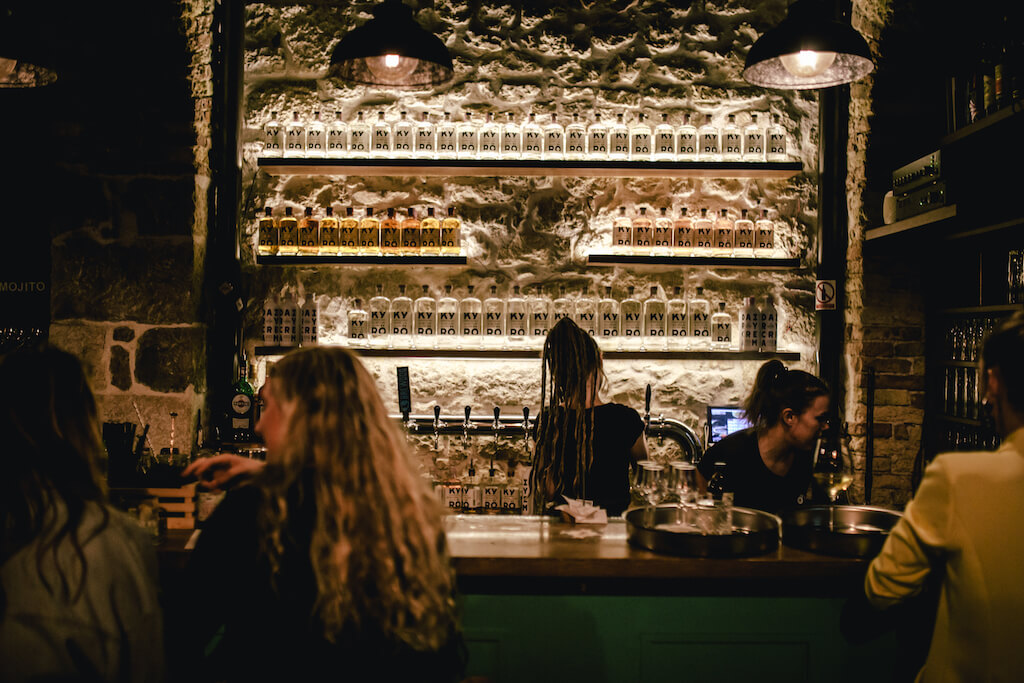
Are you aware of any initiatives to improve winter tourism in Split?
Luke Stewart: I've been following what Total Croatia News has done around the subject, but in terms of tourism, not so much. In terms of winter hospitality, many of us are trying hard, and we do every year. Many really good places stay open all year, and there are a lot of places that only open in the winter that are essentially unheard of to foreigners - and they are amazing.
What would help develop things? If the city remembered that local hospitality is just as important as tourism. Everyone that stays open all year has this idea that tourism comes second - and it will come. But if you focus just on summer tourism, you lose the local vibe, which is something people would actually come for in the winter.
Give us a few quick wins that could make Split a bit more attractive in the winter months?
Flor Vignaroli: I am from a big city - Buenos Aires. The winter is the same as the summer - or even better. In the summer, everyone goes on holiday, and during the winter, you have an endless list of things to do. Of course, things have changed with the pandemic, but you have live music, art exhibitions, museums, and street events. The Riva is an excellent location to host events during the winter. It shouldn't just be a place where locals have coffee. The City needs to offer more to the people that live here. Whether they are paid or free events, it doesn't matter. In general, there is not much going on. Look at the Koteks building, for example. It just sits there. What an amazing location to host an event!
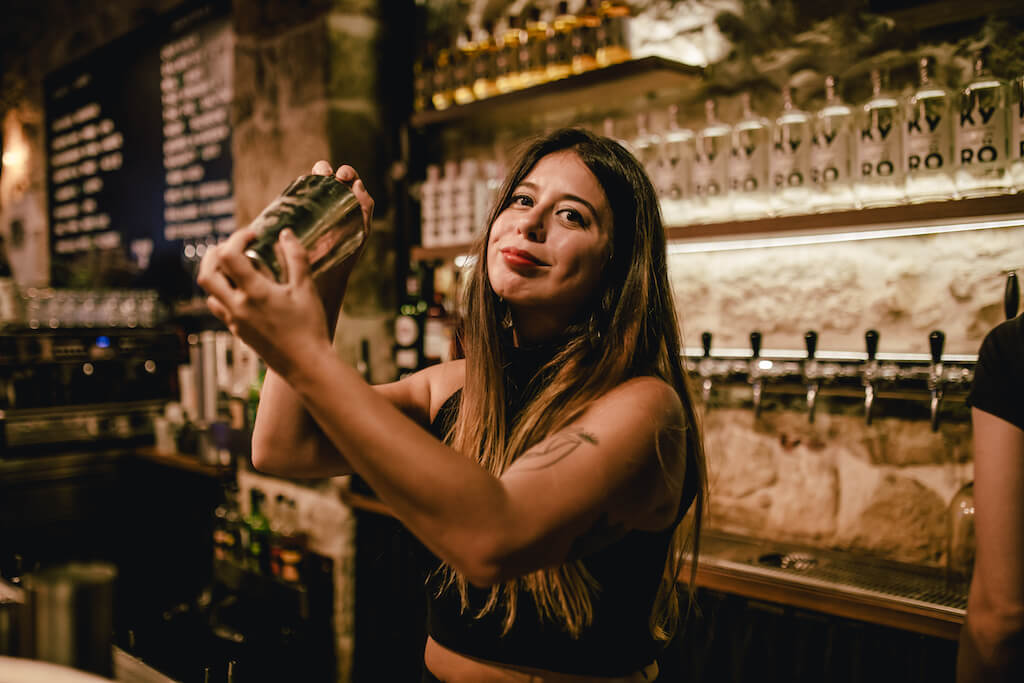
Luke Stewart: Dalmatia forgets that we are our own country; we are not just a holiday resort. You can't compare Dalmatia with the rest of Croatia as it is totally different. And it is almost like the mentality has shifted - that we are one giant holiday resort, that is what we are good at, and this idea of being a living and breathing city goes down every year. If that were fixed, that would be the change. People go to Prague or New York in the winter because of the buzzing local life - even when it's -10 degrees. The winters should not be about what we can do for tourists but what can we do as a city? If the city is alive and exciting, the tourists will come. Do you want to go on holiday to a city that's closed? It doesn't have to be waiting for you to arrive like in summer. But imagine going to a bar in Split for your first time, and it's December, and it's packed full of local people.
Flor Vignaroli: When you're traveling, you want to see the local scene. Is there even a local scene in Split at the moment? You work hard for 4 months during the season, really hard, then you have nothing to do in the city you live in when you can finally relax. We want to provide locals with something to do. Otherwise, it's boring. We don't only work for tourists. We always make sure our prices are fair for locals. We have a big selection of quality beers that range in price. We try to serve the local population.
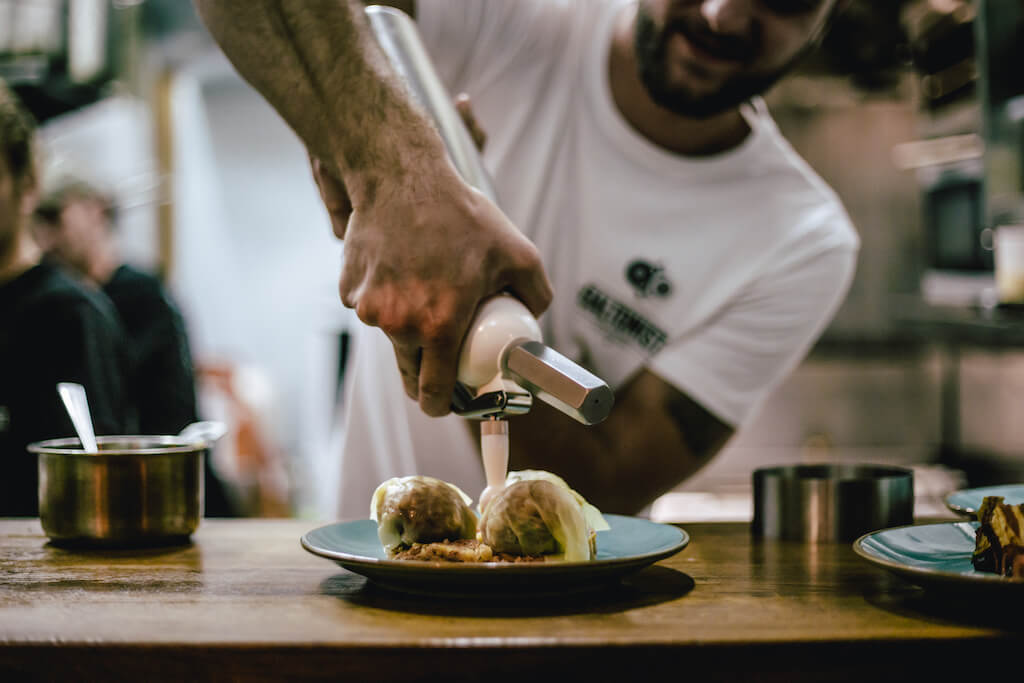
Luke Stewart: We also don't bump our prices up in the summer. We sell a more premium product in the summer with a more premium experience. Our winter is cheaper not just because we are dropping prices and margins, but we are offering something simpler. We can serve eggs benedict in summer with shaved truffles for 100 kuna, but we aren't selling the same thing for 60 kuna in the winter. We have a different version that works out to be less for local people.
And what about the winter events at The Daltonist this year?
Flor Vignaroli: We are starting with live music, DJs on Fridays and Saturdays, and are working on doing different kinds of events, for example, a chef takeover with Mate Janković. We chose Mate to launch this new event series at The Daltonist. He will create a 5-course meal paired with Croatian Varionica beer. We are selling tickets in advance to make sure we can control the Covid measures. Our idea is to offer people something different. We want to provide events we would want to attend ourselves. Things are happening in other cities, but why can't we do that while supporting local artists at the same time? We want to showcase people from Split and foreigners. We want to host an art exhibition with Luka Duplančić at the end of November, and will continue with events in December. We also hosted a gin masterclass last month and did a bar takeover in Zagreb a few weeks ago, and we plan on doing the same in Split.
Someone suggested we do an open mic night, so we are discussing that idea right now. We want to offer something different every day of the week. We have the space for it, so why not?
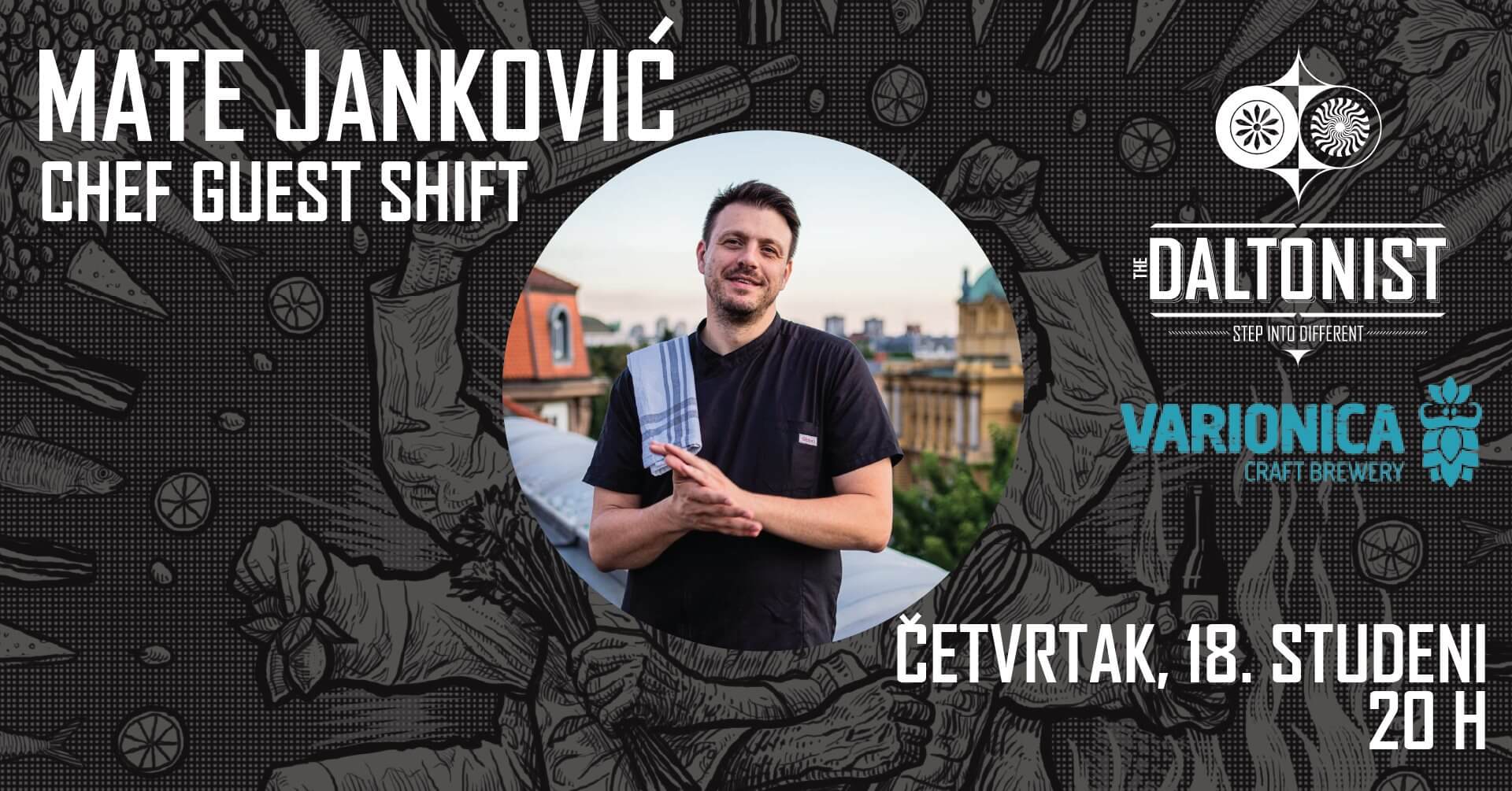
Luke Stewart: Our goal this winter is to focus on community-based events. And mainly to have fun. You work your ass off in the summer. Hospitality is a fun job, and we all work in this because we don't want that boring 9-5. We have friends all over the country doing the same thing. So now, in the winter, we get to create events that are fun for us while giving back to the local community.
For example, our neighbor has the best coffee in Split (Soul Coffee). He attracts the morning crowd while we draw the evening crowd. But in the winter, it is too cold for him to work. We have zero interest in selling coffee, but because we have a good relationship, and his coffee is great, we are selling it at The Daltonist this winter. That way, his local customers get the Soul Coffee experience year-round, and we get to sell great specialty coffee. It's a win-win for everyone.
Winter is just as enjoyable for us as the summer. We don't plan on closing at all, apart from New Year's Day, as we are all too hungover to work. This winter will undoubtedly bring more challenges, especially since we killed smoking. But we really believe in it and aren't trying to stay open to make crazy money.
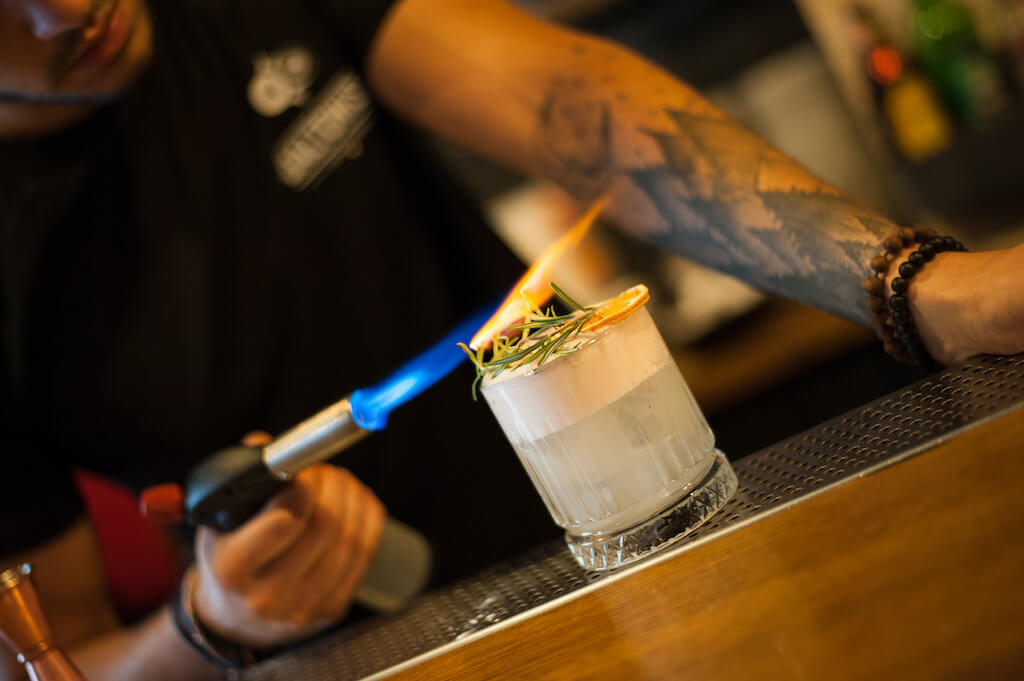
In the middle of the interview, an inspector visited The Daltonist telling them they had to take down the decorative plants hanging on the outside wall as someone had reported it.
Luke Stewart: That would really help winter tourism. On a national, regional, and city level, the government is constantly trying to suffocate and choke the people who are trying to make things happen. People try to do nice things here, and then the inspector comes and tries to punish you for it. You're often driven to the point of wondering why you're even trying. It's really draining.
In general, small businesses are enemies of the state. But small businesses drive community and culture. And that is what we bring people in the winter. If a business is allowed to thrive, it is good for the local and travel economies.
Flor Vignaroli: Digital nomads, for example, want a nice co-working space and apartment, but when they close their laptop, they want to have fun. And where will they go if the city is dead? So that is a massive point of why we are doing what we are doing. For the local community and for the people wanting to live here.
How has your clientele shifted moving from summer to winter?
Luke Stewart: We are still seeing a lot of foreigners, but we are also seeing people staying here long-term, from digital nomads to people escaping Covid at home. We noticed a lot more long-term visitors in the summer as well, whether it is for one month or three months. The digital nomad movement has been a huge part of that. So while there may be fewer tourists, it feels like a lot of foreigners are still here.
The local crowd also comes back out in the winter. You don't see any locals in the summer because they're either working or staying away from Split. October is the month where we see the shift. We like it best when it's 50/50 - half locals, half foreigners. That's when we feel most like an international bar. And that's what winter tourism is about.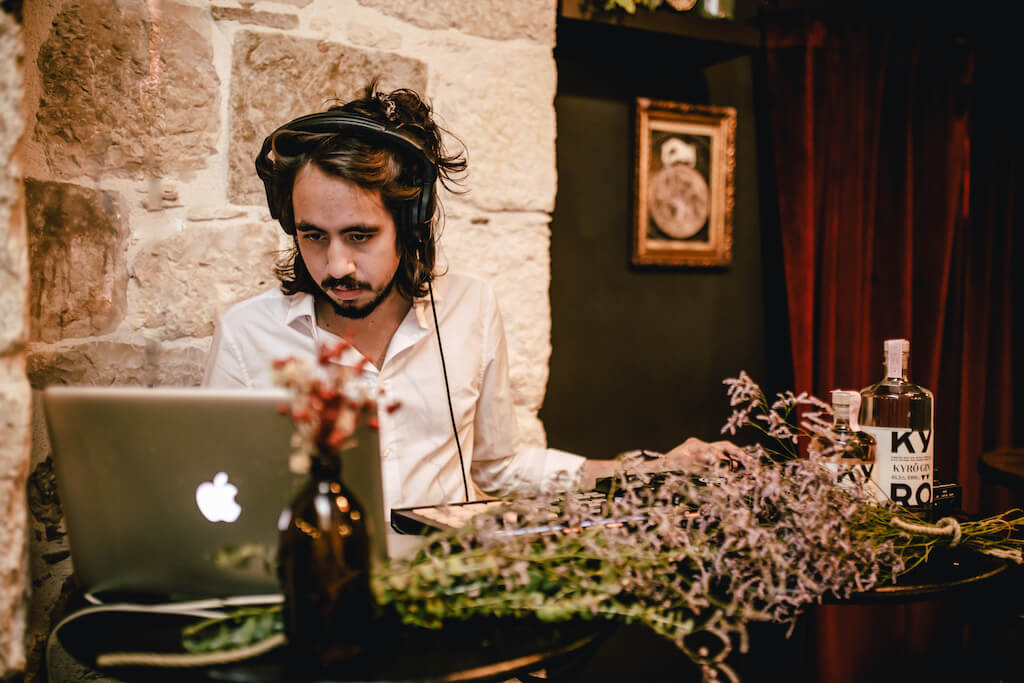 What are the critical steps to getting more flights in winter?
What are the critical steps to getting more flights in winter?
Luke Stewart: Umm... to try. Trying would be good. Don't sue people who are trying; that also helps.
Flor Vignaroli: We are foreigners. We live here for a reason. We choose to live here because we actually like the country. But, of course, we want to see Croatia succeed. There is so much potential here. Why is so much not working?
Luke Stewart: Croatia as a place is incredible. But I can't say the same for the Croatian state. We work in hospitality and don't even see ourselves as working in tourism. But I will say that I think that the Croatian coast needs to work on itself before it can expect people to come. Why would you want to go to Belgrade in the winter? It's alive with people, just like Zagreb.
This winter tourism thing is backward. "If you come, we will do something." It should be that we are doing something because we want to, and then people will notice. You can see this in the mentality of some businesses. They think, "well, we are open, so why aren't you coming?" But it would help if you opened it because you believe in what you are doing, and then people will take notice.
Flor Vignaroli: The City of Split needs to invest in culture. It's as simple as that. Invest in local artists, invest in making Split more attractive to its people. How hard is it to do a couple of cool events a month? There are so many cool artists and really talented people here, but you have to give them the space.
A message to other businesses in Split?
Luke Stewart: The first thing that comes to mind is every business owner here, whether it's the summer or not, has trouble finding skilled employees. The reason is that skilled employees are not provided with year-round stable work, so they leave. If we had a year-round economy, we wouldn't have the brain drain and population decrease. Even if you only worked 3 months a year, it would be so much easier if the economy works year-round. The best workers leave to go elsewhere, and I think working year-round would revolutionize not just the winter but the summer as well.
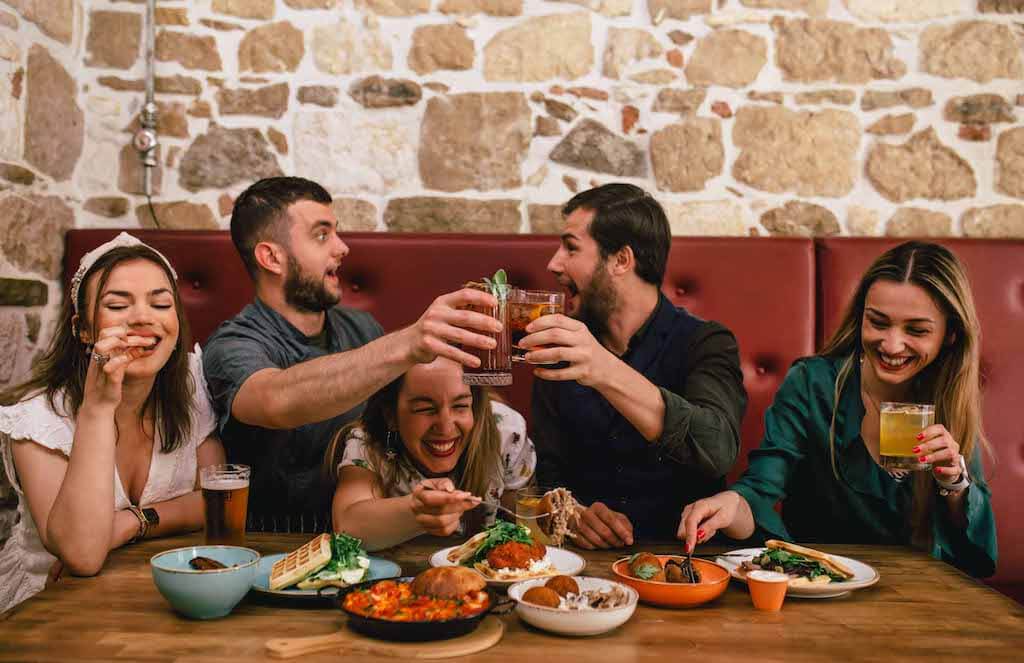
A big part of staying open in the winter for The Daltonist is that we have developed an amazing team, and we are all here long-term. Businesses rely on their people. When you can provide people with stable, year-round work, everything develops much faster. So we thought not about how little we could get away with but instead how much. That revolutionized things for us. And looking at things metaphorically, if you invest more into Split, there will be more tourism.
If you are a business in Split with a winter program, please contact This email address is being protected from spambots. You need JavaScript enabled to view it. with the subject Split Winter Tourism.
Digital Nomads Helping Split Winter Tourism this Year
December 19, 2020 - The numbers are in for November - and they aren't totally grim when considering Split winter tourism.
Believe it or not, there is some turnover in tourism this year, reports Slobodna Dalmacija.
According to the eVisitor system, there were 4,323 arrivals, and 21,671 overnight stays in the Split area in November, which is about 23 percent of arrivals and 53 percent of overnight stays realized compared to November last year, says the Split Tourist Board.
However, there are no noticeable changes. Moreover, according to Martina Nimac Kalcina, president of the Family Tourism Association of the Croatian Chamber of Commerce, this crisis has taken us back ten to twenty years.
"Regardless of the COVID crisis, the occupancy of private accommodation has always been very low from November 1 to April 1, which is understandable given that seasonality is generally pronounced in the Republic of Croatia, and it is an accommodation that is exclusively reserved for families and small groups, who mostly base their summer trips during the school holidays.
However, in the last few years, this seasonality has extended, especially in cities and luxury facilities, and we have been on the best path to making some destinations year-round.
Nowhere is the situation good. In situations when we lack guests from air destinations, the northern Adriatic always passes better, because it is more accessible by car to neighboring countries. Some brave guests go on vacation to a destination from which they can easily and quickly return home," says Nimac Kalcina.
The low occupancy that we currently have in private accommodation is mostly made up of foreigners who are on a longer stay in the Republic of Croatia, mostly digital nomads and people transferred to working online due to COVID.
"Such guests feel safer and more comfortable staying with us in private accommodation by the sea than in the cities where they normally live. Given this, we welcome the amendments to the Aliens Act, which enter into force on January 1, 2021. The category of digital nomads is extremely facilitated for obtaining visas for up to a year.
Some renters have already informed me that their guests have encountered the problem of needing to extend their stay because their tourist visa, which is valid for 3 months, is expiring. They would like to extend their stay precisely because of COVID. From January next year, this will be possible by a much easier procedure," she announces.
Due to the epidemiological situation and the recommended measures, there isn't much reason to celebrate this year.
"Given that, I believe no one expects reservations. On the other hand, we have been leading socially isolated lives all this year and will be doing so for some time to come. I believe that all those who can afford to should organize a short trip for themselves and their children.
Private accommodation is ideal for these trips because they have no contact with other people, and they do not need to meet the host if they do not want to. A large number of owners have already organized the possibility of "self-check-in." Unfortunately, this is a small number of potential guests because the spending power has dropped," says Nimac Kalcina.
Prices of accommodation this season are lower. Luxury facilities mostly did not lower prices (emphasizing holiday homes), while smaller units, by city, had significantly lower prices, averaging about 25 percent. For next season, she predicts prices similar to 2020 with better occupancy.
Still, it looks like hotels will recover more slowly because there will still be fewer group trips and fewer business events, regardless of their prices.
There will also be a smaller number of guests from third countries who were hotel guests in large numbers, due to the reduced number of airlines. Camps, on the other hand, could have a good occupancy rate.
"This difficult situation will not lead to a significant reduction in private accommodation. So far, to my knowledge, there has been a reduction of some 6 to 15 percent, depending on the region.
I expect that another percentage of renters will decide to deregister their accommodation units, but I also expect a part of the new facilities to be categorized.
First of all, I am thinking of the many hosts who have invested in their facilities and planned to categorize them in the spring of 2020. However, because of the pandemic, they decided to postpone the categorization for next year. The profitability of apartments with a large number of beds, rooms, in cities ... is questionable," says Martina Nimac Kalcina.
For the latest travel info, bookmark our main travel info article, which is updated daily.
Read the Croatian Travel Update in your language - now available in 24 languages.
Join the Total Croatia Travel INFO Viber community.
Split, is the Old City Center Dead?
February 21, 2019 - Slobodna Dalmacija's Tihana Marović details her winter walk through the bleak Split city center.


